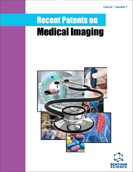Abstract
Nuclear magnetic resonance (NMR) is widely used in physics, chemistry, biology, engineering and medicine because there is hardly another technique that is so informative for so many different types of applications. There can be few better examples of the complex and unanticipated interactions of basic research and technological innovation than the development of magnetic resonance imaging (MRI) techniques for medical diagnosis research. Functional magnetic resonance imaging (fMRI) extends conventional anatomical imaging to include localization of the brain areas active during perceptions, actions, emotions and cognitive tasks. The advantages of this new neuroimaging technique offer unprecedented opportunities for the investigation of human brain functional organization as well as medical applications. However, realization of these advantages requires new theoretical methods, analyses and novel approaches to old questions. Breaking new graound would be very difficult without the proper understanding of the MRI Physics offered by the analytical solutions to Bloch NMR flow equations. In this patent review, we have presented foundations and characteristics of models and methods used in magnetic resonance imaging with particular reference to functional mgnetic resonance imaging.
Keywords: Bloch NMR flow equations, Functional magnetic resonance imaging, BOLD fMRI, diffusion imaging, nanomedicine, Blood Oxygen Level-dependent effect, arterial spin labeling, molecular diffusion, molecular transport implicit, displacement probability distribution, spin echo NMR diffusion, apparent diffusion coefficient, diffusion sensitization
 20
20

